Reviews include Irena’s Vow, The Beast, and Before I Change My Mind.
An Interview With: Denis Villeneuve
February 22, 2017
A lot can happen in just a few weeks.
When Karen Gordon met with Denis Villeneuve in a Toronto hotel room on a snowy day in early January, the 89th Oscar nominations had yet to be announced. And just before Christmas, word was that Villeneuve was in talks to direct a reboot of the first book in Frank Herbert’s Dune trilogy—while simultaneously working post-production on one of the most anticipated films of 2017, Blade Runner 2049.
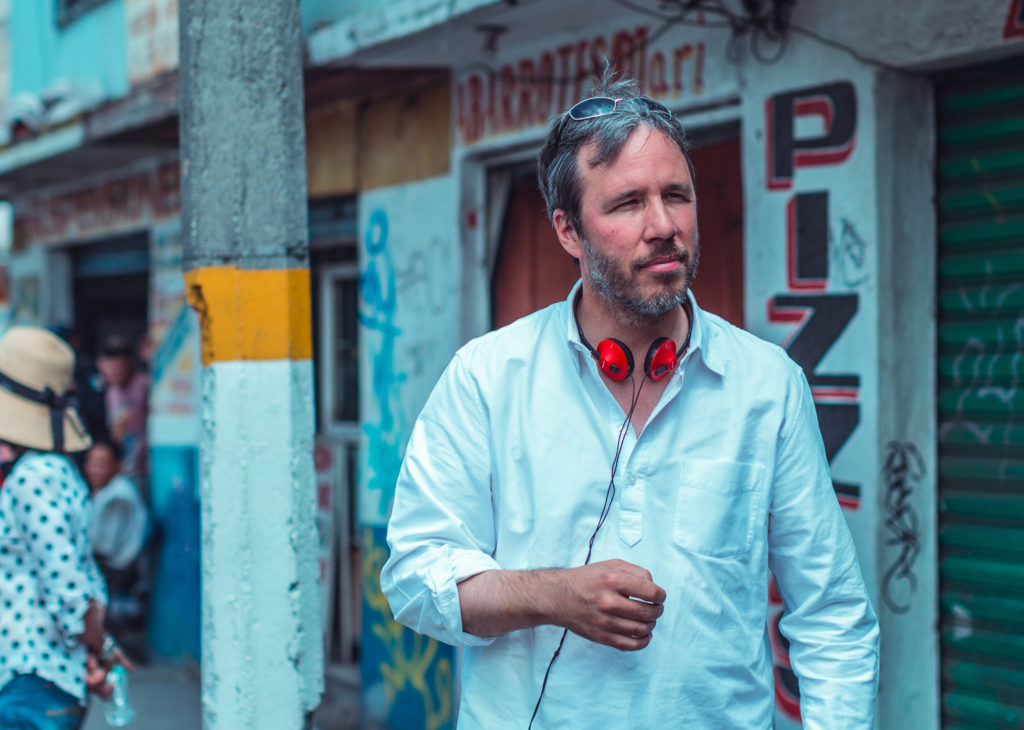
Villeneuve, already an award-winning director in Canada, has very quickly become one of Hollywood’s most prolific, reliable and interesting filmmakers. He has been working at a whirlwind pace, turning out at least one movie a year for the last four years: Enemy and Prisoners both released in 2014; Sicario in 2015; and Arrival in 2016.
All of this while maintaining an aesthetic and philosophy that is counter to what mainstream Hollywood produces these days: He is a meticulous, intelligent filmmaker drawn to complex stories. He gets under your skin. And yet in person, he’s a relaxed, gracious, understated filmmaker. At our gala last month, the Toronto Film Critics Association bestowed upon him a 20th anniversary special award for excellence, recognizing his record three wins of the Rogers Best Canadian Film Award. Below, he chats about his influences, how he contextualizes his Quebecois upbringing, and yes—Blade Runner 2049.
Karen Gordon: So, Denis, congratulations! In addition to the support you’ve received from the Toronto Film Critics Association, you’re now an international director. But does a relationship with the critics in your own country have meaning to you?
Denis Villeneuve: Definitely with Toronto. The TFCA is 20 years old now and I think I started making made feature films 20 years ago, so it’s really like we are in parallel lives. Right at the beginning, they were the ones that were curious about me. They were the ones that cheered the most loudly when they saw Maelstrom.
But what about now? Does what critics write or say about your work have any meaning at all to you?
Good critics are fantastic and terrible mirrors. They are necessary for a filmmaker… It can tell you a lot of things about what you should do and where you should evolve. For me, at one point in my career, I was reading them more because I was feeling like I needed that feedback in order to evolve as a filmmaker. But you have to be careful because some of them are nasty. But also some of them are too positive. The good ones are the ones made with pure love of cinema.
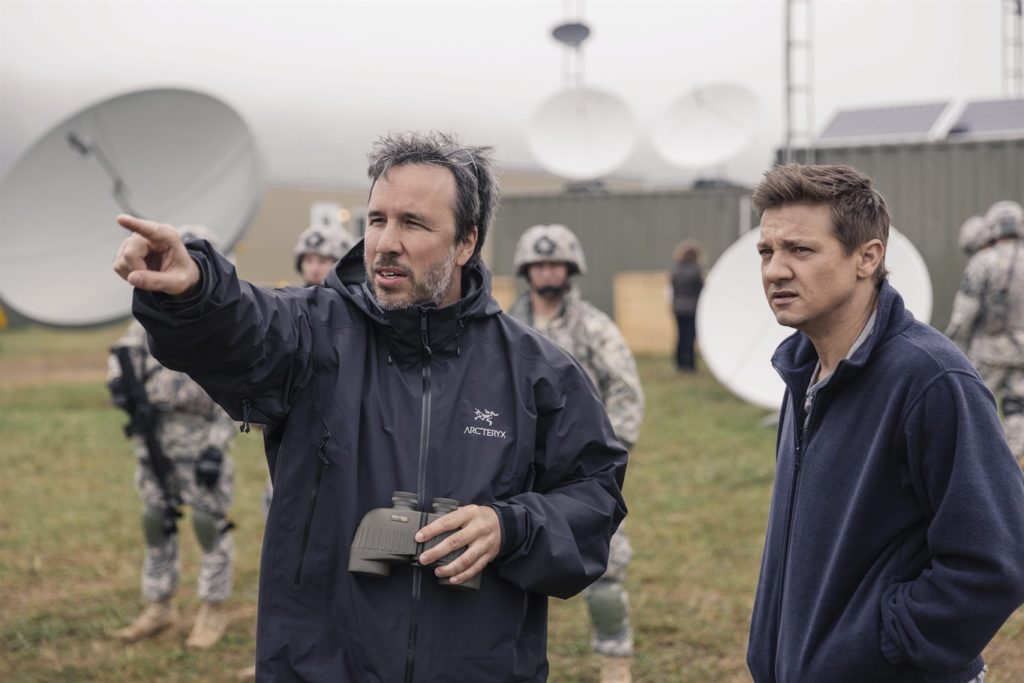
Who were your influences? Who inspired you?
I was raised in a small village in Quebec, so mostly in this part of the world the cinema I was in contact with was American cinema. So I remember where I discovered the job of director when I was suddenly attracted to the movies of someone specific, and why him? Why was he such a strong storyteller? There was a mark of an artist there. And it was Spielberg. So as a kid I was inspired by Spielberg very early. That was my first cinema crush!
I understand you had to decide between studying science and studying film! So, as you made the choice to go for film, did that change? Or has Spielberg been a magical guy for you?
No. As I grew up I discovered tons of cinema. I got more and more cinematic influences. There were several big aesthetic shocks in my life like when I discovered the French New Wave because of Spielberg, because Francois Truffaut was part of Close Encounters of the Third Kind.
Let’s turn to your work. You’ve explored a lot of different subject matters and genres, but the thing that I think is common to your films is that you take your films deeper in a psychological sense than the standard North American filmmaker. How do you choose the stories you want to tell?
In order to tell a story, I need to have a deep connection with it from a very intimate point of view… It’s always the goal as a filmmaker is to try and create an artistic object that will be singular; that will have some freshness. … We don’t necessarily need new movies, but we need connection. We need relationships, we need to communicate together, and cinema is such a powerful medium to do that.
When I look at your filmography, I see a filmmaker unafraid to tell dark or traumatic stories, stirring up deep psychological material. But there’s also a lot of light in there, too.
I did two feature films (Un 32 Aout Sur La Terre and Maelstrom) and after these experiences I realized that I wasn’t in the right direction. I felt the need to go back to school to learn more about cinema and about life too, and to come back with projects. I was always saying to myself next time I’m going to do a movie I will be able to stand with the movie. It doesn’t mean the movies will be necessary good, but that the movie will mean something deep for me that will have a resonance for other people. And that I wasn’t ready to do that after Maelstrom. I felt as an artist felt I was lacking tools in order to be able to direct the way I wanted to direct.
So that’s maybe why I went a bit far when I came back with projects that I felt I was very deeply passionate about. Polytechnique and Incendies are movies that are almost twins because they were written at the same time. Both of them were dealing with quite dark subject matter, but where I had that deep connection with both of them, and I felt that I was doing the right thing at the right moment.
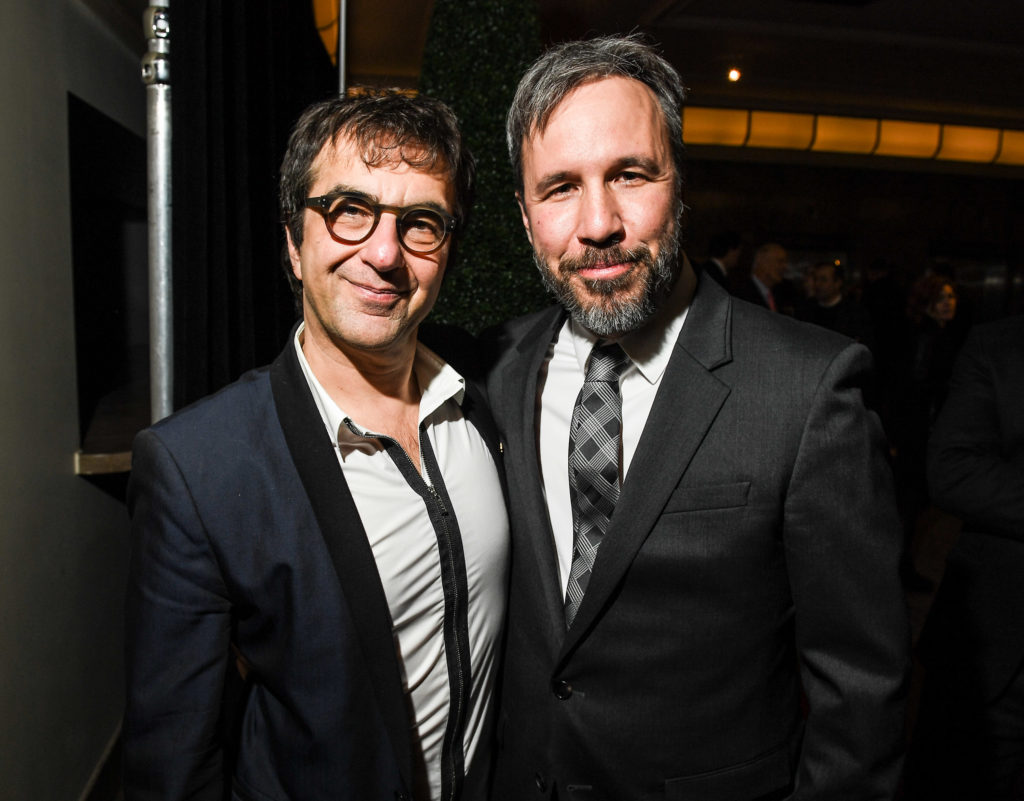
Speaking of your background, I haven’t asked you yet about being a Quebec filmmaker. Do you feel particularly Quebecois in any way as a storyteller?
Yes. Definitely. I think that it’s the big cliché, but the language for us is a strength. I always feel with English Canadian filmmakers that there’s a struggle to resist the pressure of American voices. We have a buffer that protects us a little more and that space allows us to explore more and take risks—especially at the beginning.
This brings us to your career now. Your first Hollywood movie was Prisoners. How did that happen? Were you at all reluctant or ambivalent about working with someone else’s script, or a bigger production team and a bigger budget, or was that an appealing challenge?
I was already having offers with Polytechnique. The door became more open and I received a lot of screenplays. As a teenager, I was dreaming of Hollywood. But, as an adult it was not a dream of mine because I was aware there was like 5,000 film directors in line there to do a sequel to a bad romcom. I didn’t dream to be part of the machine, and I had heard too many stories about directors being crushed by the system there. I wasn’t attracted to it.
But when I got Prisoners, I saw an opportunity to extrapolate some themes that I had done with Polytechnique and Incendies. For me there was some kind of continuity. I must say the curiosity to work in the American system was bigger. I remember my partner at the time saying to me, “Remember, if you go there, when you come back you’re not complaining!”
Everyone is so excited about Blade Runner. You’re stepping into a franchise. Harrison Ford is back. These are huge promises. Can you talk about why you took this on? Was it challenging? Exciting? Scary?
The first time I heard that Ridley Scott was thinking of making a sequel to Blade Runner, I thought it was an insane, powerful, great, bad idea! It’s like, why?! And how? At that time I had seen some artwork and was mesmerized. I was deeply moved by the trust of the producer who came to offer me this project.
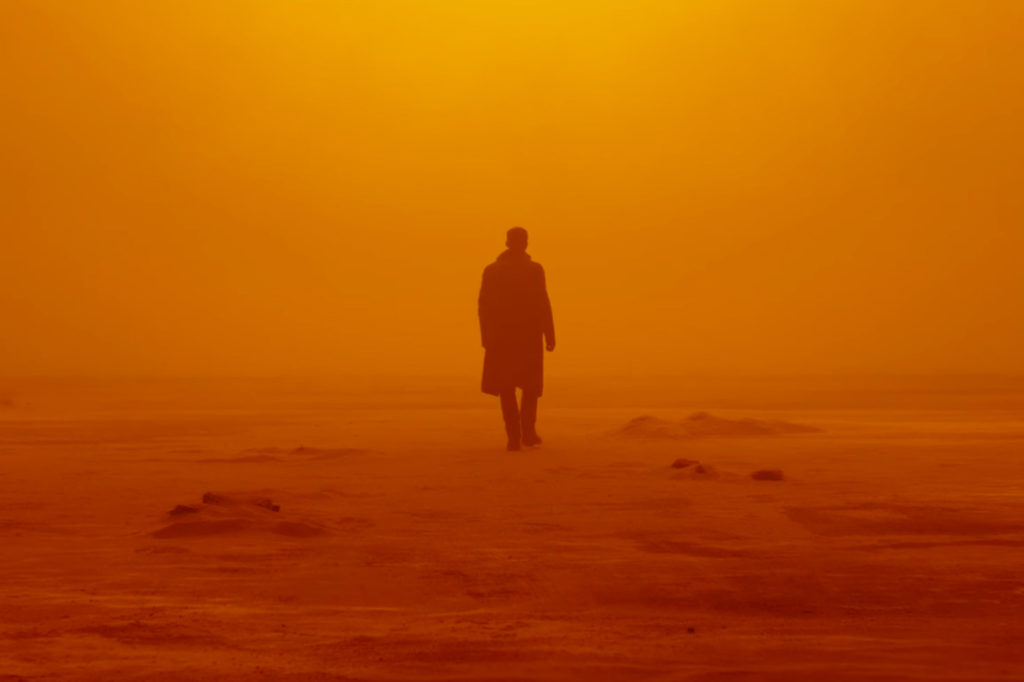
I accepted the project for two reasons. The screenplay was pretty powerful and pretty strong and I found that connection that we were talking about earlier.
Also, I love the original so much and I was not able to say no to that. It’s a movie that has been part of my education. It constructed my filmmaker DNA. It’s one of the foundations of why I’m here today. I felt it was such a strange thing that this screenplay was coming in front of me. Why me? There’s a lot of directors who could have done it.
I felt that I was able to do it. But I needed the blessing of Ridley Scott. I needed to make sure he would agree to say that I could do it. I had a nice meeting with him. I had a nice meeting with Hampton Fancher as well.
When [I made Polytechnique], the whole town of Montreal, the whole province of Quebec—everybody was saying, are you insane? But I felt compelled to do it. And it’s like I knew it was important for me to do it and I knew there was a way to do it that would mean something. But it was a huge responsibility.
[With] Blade Runner, I’m taking the universe of a master, who did a masterpiece, and I need to take this universe and digest it and to make it my own. So honestly it was like a nightmare to do that process! It was very intense. And very exciting at the same time. I’ve never been that excited in my entire life artistically as a filmmaker.
You seem so calm! Everyone is waiting for this movie! You’re okay with all that pressure?
The pressure is coming from me, myself, and it’s bigger than anything I can feel from outside honestly. At the end of the day, it’s a movie. It can be fantastic or it can be a bad movie. I don’t know. It will be for you guys to tell me at the end. But I will say it was a very deeply inspiring shoot, and that I’m pretty excited right now. But you know what? What is very delicate about the project is that even if I do a fantastic job, there will be comparisons with the first one for obvious reasons and I don’t know what will be the reaction of other people. I made peace with that. I’m going forward with that.
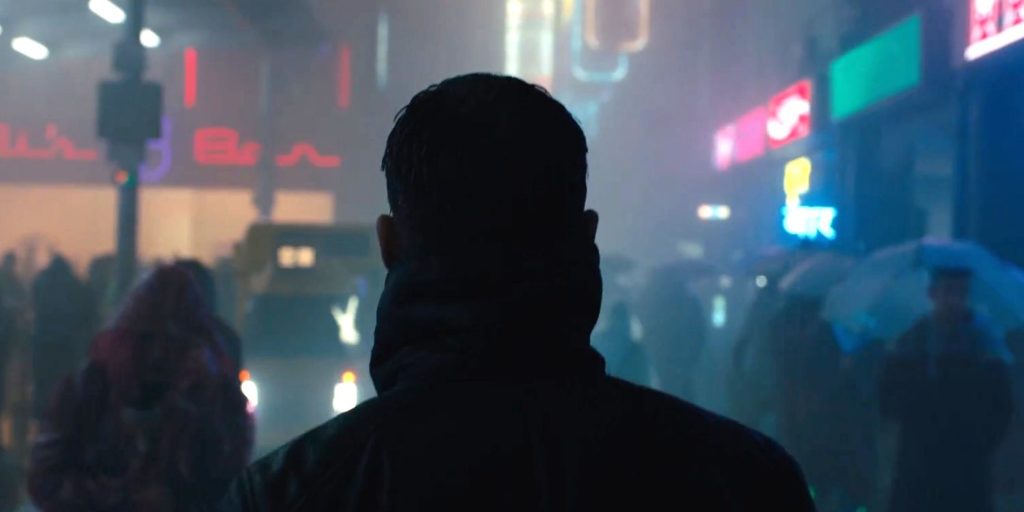
Can you say anything about Dune?
Dune is a novel that I read a very long time ago, and it still is one of my favourite novels specifically of sci-fi. I always dreamed to do Dune. I remember how excited I was before seeing the David Lynch adaptation. David Lynch is, as we all know, one of the most talented and powerful filmmakers of the past 50 years. But I felt that there were things in his approach that I didn’t like. Things that I deeply love, but things I didn’t like. It was not the Dune I was dreaming of, and I’m still dreaming about it.
Let’s talk about the Oscars. What will it mean if you win one?
Awards are strange things. Art—why do we need to compare art pieces together like that? At the same time, we are in a system today that is very competitive. It’s like you need, in order to have the permission to go on and make the privilege to make another movie, to have a certain level of success. The goal is to be free and to have the tools to make the movies you want. So, yeah. It would be a nice compliment I would say.
When you look at your work, do you think there’s an overall theme?
I’m trying not to analyze myself too much. I like to preserve the mystery of creativity and the flow of intuition. Definitely there’s the will to find what I will say is real freedom, which is to be able to be free from ghosts from the past and to find real humanity and not to have to deal with all that shit that is corrupting our heart and mind. But apart from that, I will stop there, I think.



